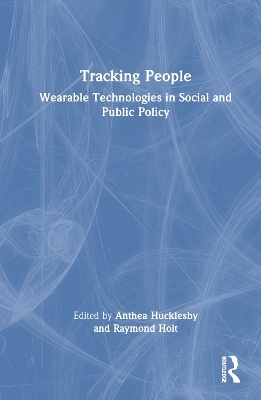
Tracking People
Routledge (Verlag)
978-0-367-44357-3 (ISBN)
Tracking technologies are now ubiquitous and are part of many people’s everyday lives. Large sections of the population voluntarily use devices and apps to track fitness, medical conditions, sleep, vital signs or their own or others’ whereabouts. Governments, health services, immigration and criminal justice agencies increasingly rely upon tracking technologies to monitor individuals’ whereabouts, behaviour, medical conditions and interventions. Despite the human rights concerns of some organisations and individuals, most wearers and their significant others tend to welcome the technologies. This paradox is only one of the many fascinating challenges raised by the widespread use of tracking technologies which are explored in this book.
This book critically explores the ethical, legal, social, and technical issues arising from the current and future use of tracking technologies. It provides a unique and wide-ranging discussion, via a cross-disciplinary collection of essays, on issues relating to technological devices and apps whose use is imposed upon wearers or suggested by others, whether agencies or individuals, including in the domains of criminal justice, terrorism, and health and social care. Contributions from leading academics from across social sciences, engineering, computer and data science, philosophy, and health and social care address the diverse uses of tracking technologies including with individuals with dementia, defendants and offenders, individuals with mental health conditions and drug users alongside legal, ethical and normative questions about the appropriate use of these technologies. Cross-disciplinary themes emerge focusing on both the benefits of the technologies – freedom, improved safety, security, well-being and autonomy, and increased capacity of and efficiencies for public services – and the challenges – implementation and operational costs, mission creep, privacy concerns, stigmatisation, whether the technologies work as expected, and useability and wearability for all wearers.
This book is essential reading for academics and students engaged in criminology, criminal justice, socio-legal studies, science and technology studies, medicine, health and social care, psychology, engineering, computer and data science, philosophy, social policy and social work and security studies. It will also be of great interest to policy-makers, regulators, practitioners already deploying or considering using tracking technologies, and to current and potential wearers.
Anthea Hucklesby is Professor of Criminal Justice at the University of Birmingham, UK where she holds a joint appointment in Birmingham Law School and the School of Social Policy. Raymond Holt is a Lecturer in Product Design at the School of Mechanical Engineering at the University of Leeds, UK.
1.Tracking people: an introduction Anthea Hucklesby and Raymond Holt 2.GPS tracking in care settings: attending to the socio-material context of use Joe Wherton, Trisha Greenhalgh, Sara Shaw, Rob Procter and Jay Shaw 3.Using tracking technologies well: the contribution of the concepts of ‘tightness’ or ‘grip’ Anthea Hucklesby 4.Proportionality and monitoring: penal vs care contexts Tom Sorell 5.‘He’s doing a hokey cokey’: everyday calculations and controversies of digitally mediated punishment in Scotland Ryan Casey 6.Tracking in the interests of counter-terrorism Jessie Blackbourn and Clive Walker 7.Smartphone electronic monitoring (EM), Artificial Intelligence and the mass supervision question in the USA Mike Nellis 8.Reducing opioid related deaths for individuals who are at high risk of overdose: a co-production study Anne Campbell, Sharon Millen, Amanda Taylor-Beswick and Li Guo 9.Using geolocation-based technologies for monitoring people with severe mental illness Niels Peek, Paolo Fraccaro and Sabine van der Veer 10.Tracking people and sociotechnical systems design Raymond Holt 11.Apple AirTags as people trackers Neil McBride
| Erscheinungsdatum | 01.09.2023 |
|---|---|
| Zusatzinfo | 5 Tables, black and white; 1 Line drawings, black and white; 2 Halftones, black and white; 3 Illustrations, black and white |
| Verlagsort | London |
| Sprache | englisch |
| Maße | 156 x 234 mm |
| Gewicht | 453 g |
| Themenwelt | Sachbuch/Ratgeber ► Gesundheit / Leben / Psychologie |
| Medizin / Pharmazie ► Medizinische Fachgebiete ► Psychiatrie / Psychotherapie | |
| Studium ► Querschnittsbereiche ► Prävention / Gesundheitsförderung | |
| Recht / Steuern ► EU / Internationales Recht | |
| Recht / Steuern ► Strafrecht ► Kriminologie | |
| Technik ► Umwelttechnik / Biotechnologie | |
| ISBN-10 | 0-367-44357-0 / 0367443570 |
| ISBN-13 | 978-0-367-44357-3 / 9780367443573 |
| Zustand | Neuware |
| Informationen gemäß Produktsicherheitsverordnung (GPSR) | |
| Haben Sie eine Frage zum Produkt? |
aus dem Bereich


